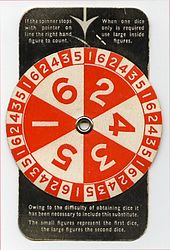1930's, The Great Depression and President Hoover
We have been reading about the Stock Market crash and the Great Depression.
We watched a lot of episodes of The Waltons to get a flavor of the period.
We also learned about...
The Hawley-Smoot Tariff Act, 1930
The Empire State Building, 1931
Amelia Earhart
Frank Lloyd Wright
The Oklahoma Dust Bowl
The Social Security Act, 1935

We enjoyed oral history interviews with my mother, who grew up in the Depression Era.
Jesse Owens and the Olympics of 1936
German-Soviet Nonaggression Pact of 1939, with plans of how Poland will be divided between the two.
We listened to The War of the Worlds radio broadcast
President Herbert Hoover
We watched a lot of episodes of The Waltons to get a flavor of the period.
We also learned about...
The Hawley-Smoot Tariff Act, 1930
The Empire State Building, 1931
Amelia Earhart
 |
| Lapbook piece from Homeschool in the Woods Time Travelers Industrial Revolution through the Great Depression. |
Frank Lloyd Wright
 |
| Lapbook piece from Homeschool in the Woods Time Travelers Industrial Revolution through the Great Depression. A little acetate wheel has pepper in it to represent the dust storms. |
The Social Security Act, 1935

We enjoyed oral history interviews with my mother, who grew up in the Depression Era.
Jesse Owens and the Olympics of 1936
German-Soviet Nonaggression Pact of 1939, with plans of how Poland will be divided between the two.
We listened to The War of the Worlds radio broadcast
President Herbert Hoover
31st President
Served: 1929-1933
Party: Republican
Stock market crash of 1929
The Great Depression
Signed the Emergency Relief and Construction Act, for Federal Unemployment assistance
Raised tariffs and income taxes
Left the White House bitter about losing re-election
Spoke out against Roosevelt’s “New Deal”
Relationship between Hoover and Roosevelt strained
Under President Truman, served on the Hoover Commission to reorganized the executive branches of
government
First president born west of the Mississippi River


Namesake:
Hoover Dam in New York
Hoover Dam in New York
Monopoly
We played Monopoly during our game night because it was distributed by Parker Brothers beginning in 1935. We also read about the places that were in Atlantic City that are on the board from the book Monopoly, by Rod Kennedy. Another interesting story about Monopoly, according to Wikipedia, was that in 1941, the British Secret Intelligence Service had John Waddington Ltd., the licensed manufacturer of the game in the United Kingdom, create a special edition for World War II prisoners of war held by the Nazis.Hidden inside these games were maps, compasses, real money, and other objects useful for escaping. They were distributed to prisoners by Secret Service-created fake charity groups.
 |
| credit: Wikipedia Also, During World War II, the dice in the United Kingdom were replaced with a spinner because of a lack of materials. |
For our Depression Era dinner, since we had already been sampling lots of Depression Era cooking, we decided to make a Hobo camp.
Depression Era Cooking
We cooked camping packets of hamburger and vegetables (much like Adventures in Mommydom's Trash Can Soup, also in her Living Like Hobos post) in a small metal trash can that has holes punched in around the sides for air.
While dinner was cooking, I gave the kids a list of hobo symbols, some paint and brushes...
 |
| This hobo sign means "kind lady." |
to add their own hobo signs. We need to paint the fence this summer, so I didn't mind them painting on it.
 |
| This symbol means "Free Telephone." |
Hobos developed a system of symbols, or a code, that they would write with chalk or coal to provide directions, information, and warnings to other hobos.
They put the symbol, "Area Full of Other Hobos" right near our hobo camp.
 |
| This symbol means, "No Use Going This Direction." |
The boys really liked the hobo dinner.
We put in them hamburger, carrots, potatoes, onions and some zucchini, a little salt and pepper and a bit of oil or butter.
books:
- Saving Strawberry Farm, Deborah Hopkinson. A story about a "penny auction" which allows a person whose property is auctioned by the bank for non-payment to buy back their own property, which was sometimes done during the Great Depression.
- Cheaper by the Dozen, Frank B. Gilbreth and Ernestine Gilbreth Carey
- Bud, Not Buddy, Christopher Paul Curtis is set during the Great Depression, an early scene involves the police dismantling a Hooverville. Bud calls it "Hooperville".
- The Grapes of Wrath, John Steinbeck
- The Great Depression: A History Just For Kids, KidCaps
- Finding Daddy: A Story of the Great Depression, Jo Harper
- Lily's Victory Garden (Tales of Young Americans), Helen Wilbur
- Triumph: The Untold Story of Jesse Owens and Hitler's Olympics, Jeremy Schaap






